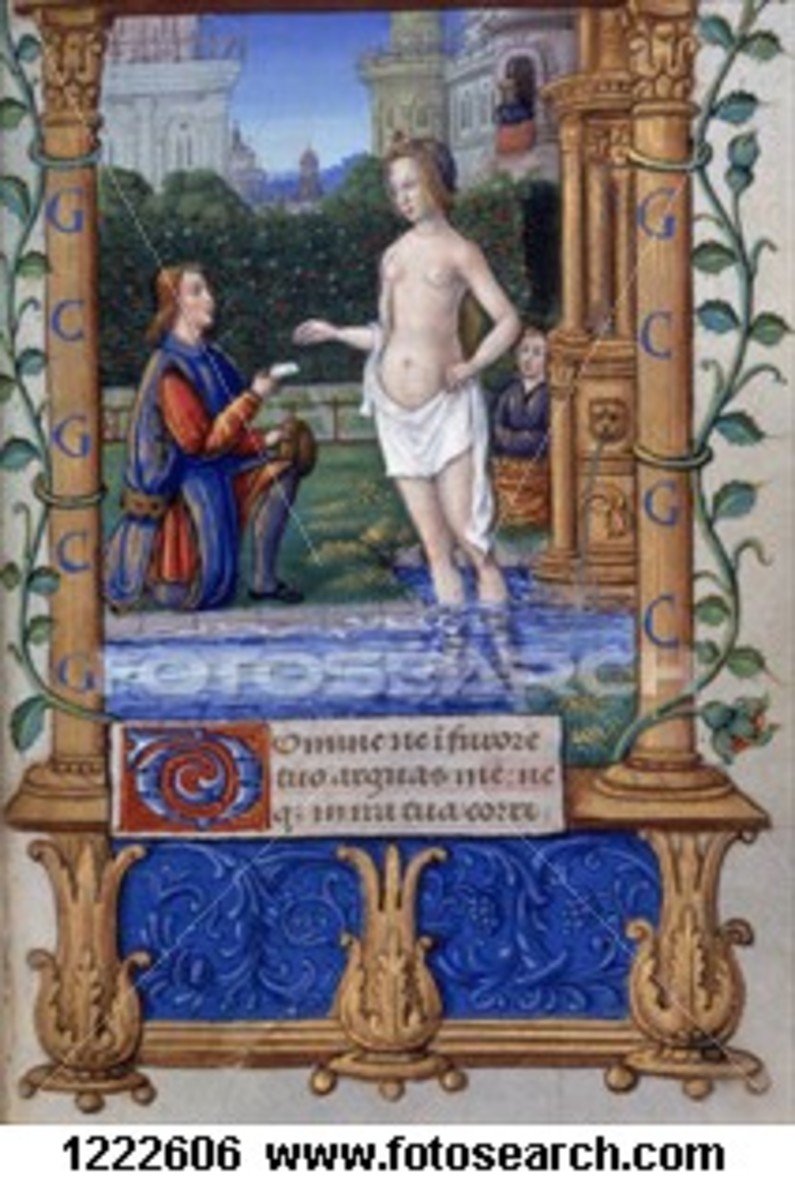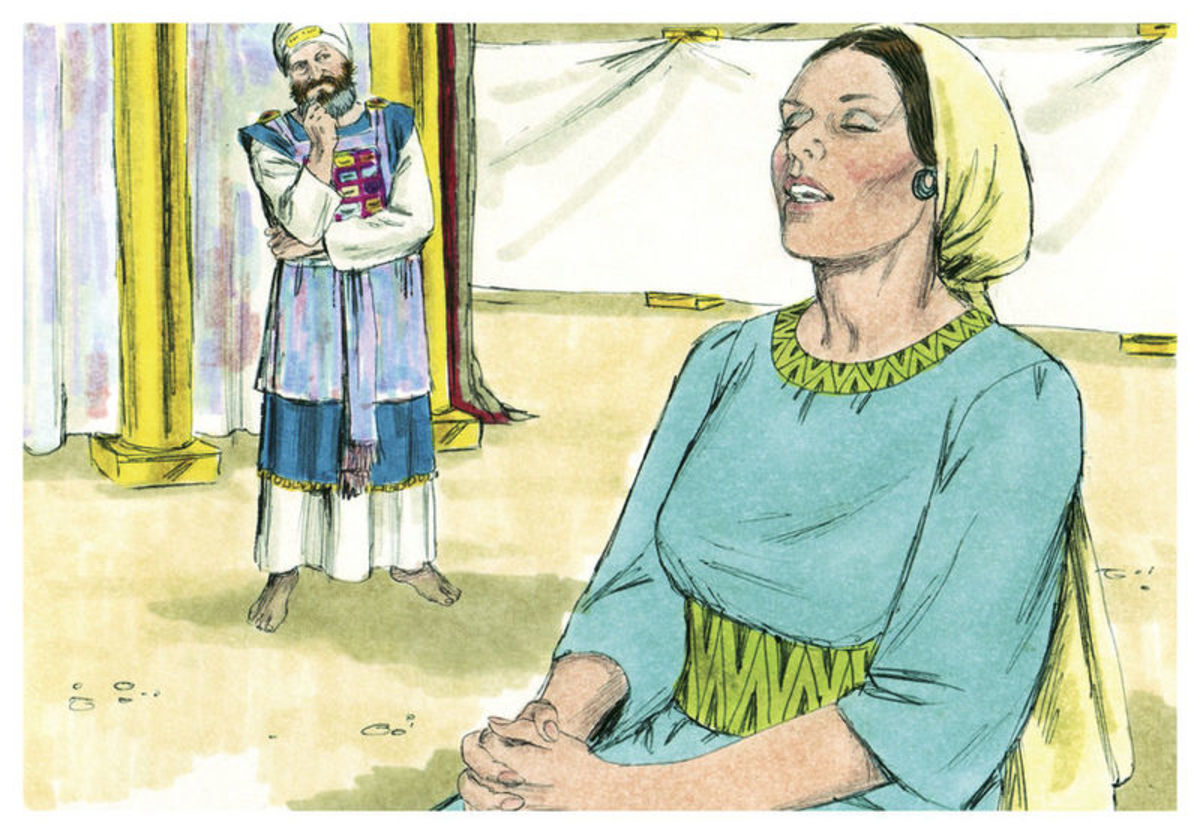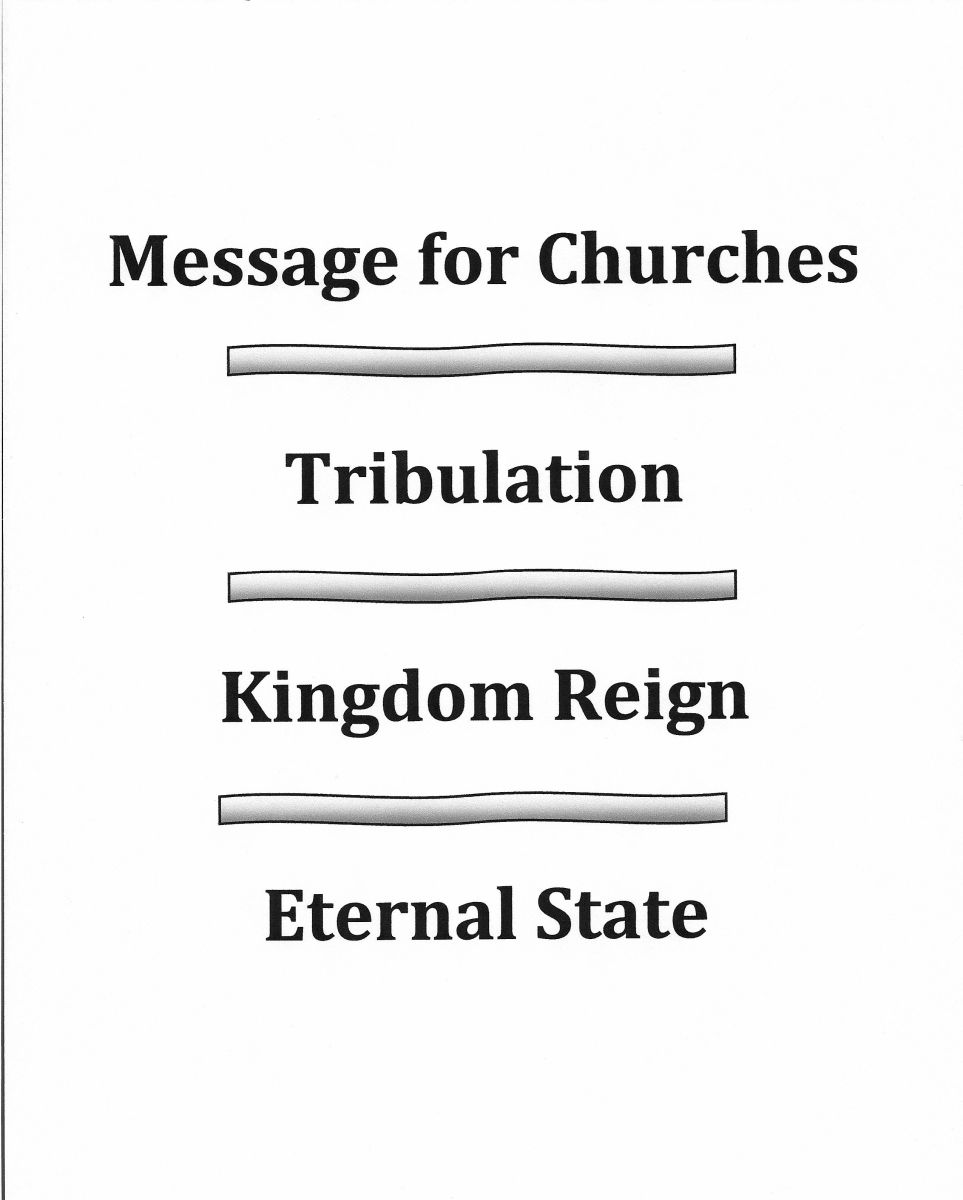Bible: What Does 1 Samuel 3-7 Teach About the Call of God, the Ark of the Covenant, and Repentance?
Young Samuel

1 Samuel 3
While Samuel the boy is performing his duties as Eli's assistant (v. 1a), the LORD calls him four times in a night revelation (vv. 4, 6, 8a, 10).
Comment: Samuel, the writer, points out that this "call" occurred before he knew God (v. 7); he was not yet able to recognize Yahweh's "voice."
Because such events were rare in that day (v. 1b), Eli easily misconstrues Samuel's first two visitations to his bedside (vv. 5, 6) as over-eagerness to please his master (perhaps).
Finally, Eli realizes after Samuel’s third visit that God is calling the young lad (v. 8b), so he instructs Samuel how to answer the “Voice” (v. 9).
Then, in an amazing, personal approach, Yahweh stands before Samuel, and speaks his name twice on this occasion (v. 10a); the boy answers the LORD as Eli had commanded him (v. 10b).
Comment: Apparently, the pre-incarnate Christ appeared to Samue].
In their conversation, the LORD reveals some startling news to Samuel about Eli's house, news that may have had "eternal" consequences: God would never forgive that house's iniquity (vv. 11-14).
The next morning Eli presses Samuel to tell him the LORD's message (vv. 15-17).
[He undoubtedly discerned that the revelation would somehow concern him].
Once Samuel reveals the bad report, Eli accepts it as from God (v. 18).
Thus begins Samuel's prophetic ministry.
Samuel the prophet continues to mature (v. 19a); eventually, his ministry receives nationwide recognition, as God fulfills every message He gives to him (vv. 19b-20).
Yahweh again appears to Samuel in Shiloh, and reveals His word to him (v. 21). [1 Samuel 4:1a—a statement regarding Samuel's prophetic work—belongs with 3:21 rather than with chapter four].
The Ark of the Covenant
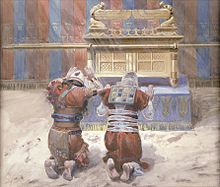
Eli's Death
view quiz statistics1 Samuel 4
Philistine victories over Israel form the backdrop for Samuel's account of the end of Eli's house (vv. 1b-18).
The enemy attacks for no apparent reason, and wins a significant battle against God's people (vv. 1b-2).
Dismayed by this defeat, Israel’s leaders conclude that they need God's ark in the camp to save them (v. 3).
With the "blessing" of Hophni and Phinehas, the people bring this furniture into their camp, thinking that God would now fight their battles (v. 4).
Comment: Rather than seek Yahweh's guidance in this matter, they proceed in a pagan way, attempting to manipulate Him through the presence of the ark. Samuel emphasizes His omnipotence and majesty ("the LORD of hosts, who dwells between the cherubim"), strongly indicating that He would not allow Israel to treat Him as one of the world's idols (v. 4).
Israel's shout of joy contrasts with the anguish of the Philistines, who also believe that Israel's powerful "gods" have entered the fray (vv. 5-8).
Nevertheless, the enemy of God's people strengthens himself and succeeds in slaughtering thirty thousand Israelites, capturing the ark, and killing Eli's two sons (vv. 9-11).
A survivor from Benjamin returns to Shiloh in mourning, reporting the bad news.
Meanwhile old Eli, blind and possibly obese, sits by the road, fearing for the safety of the ark (vv. 12-13, 15, 18).
After he hears from the Benjamite the terrible results of the battle—especially about the capture of the ark—he falls backward, breaks his neck, and dies. His period as judge of Israel thus ends very sadly (vv. 14, 16-18).
At about this time Phinehas' pregnant wife, under the triple duress of the day, dies while bearing a son (vv. 19-20).
Before she expires, however, she appropriately names the boy Ichabod ("Inglorious"); the glory—the ark of God—has indeed departed from Israel, and is now in the hands of the enemy (vv. 21-22).
Dagon, the Fish-God
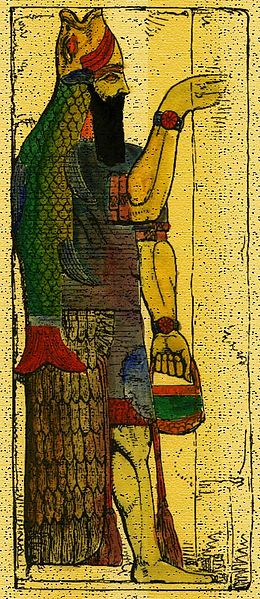
1 Samuel 5
After their victory over Israel, the Philistines transport the ark south to Ashdod, a chief city in Canaan (v. 1).
Believing now that Yahweh is just another god (and now even less powerful than Dagon, their fish god), they set God's ark alongside this idol (v. 2).
To teach them a lesson, the LORD causes the idol to fall on its face before the ark during the night (v. 3).
[What did they believe caused this fall? The wind?]
The next night God makes His message even plainer, breaking off the idol's head and its palms (v. 4).
Consequently, Dagon's priests stand clear of the temple (v. 5).
Yahweh then afflicts the Philistines with tumors in what appeared to be a bubonic outbreak.
Determining that the presence of the ark is causing their misery, the Ashdodites petition their government officials to remove it to Gath (vv. 6-8).
While the ark sits in that city, God wreaks even more destruction, causing tumors to break out upon those people as well (v. 9).
When Ekron receives the ark, its officials complain to the Philistine lords exclaiming, "Send it back to Israel!'' God's "hand" causes the plague not only to ravage this city, but also to kill many of its people (vv. 10-12).
Uzzah's Error
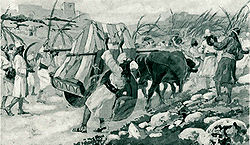
Divine Judgment on Uzzah
view quiz statistics1 Samuel 6
For seven months the Philistines keep the ark (v. 1), and God torments their five major cities with bubonic plague (vv. 4, 17-18).
Finally, they consult with their religious leaders, who advise them to send Israel's property back to Yahweh’s people in the following manner:
(1) Each city must not harden its heart, but contribute one golden rat image and one golden tumor image as trespass offerings (vv. 2-6), and
(2) Each city should place these items in a chest, put the chest beside the ark on a cart, and let untrained oxen take the cart where they will.
If these beasts travel toward Israel's territory (namely, Beth Shemesh), then the Philistines would know that Yahweh had afflicted them (vv. 7-9).
The afflicted follow their priests' directions precisely, and the milk cattle walk the road to Beth Shemesh (vv. 10-12).
Rejoicing to see the ark, the Israelites subsequently use both the cows and the cart to offer a burnt sacrifice to the LORD (vv. 13-14).
As the Philistine lords briefly look on from the border, the Levites remove the ark and the chest from the cart, and the men of the town continue to sacrifice to God (vv. 15-16).
However, curiosity drives many Israelites to look into the ark: an act that Yahweh expressly forbid; as the result, the LORD kills a great number of them (v. 19).
Comment: It is extremely difficult to accept that fifty thousand seventy people in Beth Shemesh died because a few looked into the ark. This number must be a transcriptional error.
Horrified by this slaughter, the people of Beth Shemesh request that the citizens of Kiriath Jearim take the ark to their city (vv. 20-21).
They transport the ark to Abinadab's house in that town and consecrate Eleazar, his son, to watch over it (7:1).
Repentance

John MacArthur
1 Samuel 7
Believing that simple physical possession of the ark would guarantee deliverance from the Philistines, Israelites in Kiriath Jearim keep it for twenty years (v. 2).
Undoubtedly, Samuel had been continually exhorting them to repent of their sin and worship the LORD alone, knowing that merely having the ark did not please God.
Nevertheless, they delayed making that commitment until the twentieth year (vv. 3-4).
After all Israel gathers in Mizpah, they repent and fast before the LORD and Samuel judges them (vv. 5-6).
When word goes out to the Philistines that Israel had assembled, the latter cry out to Samuel, "Keep praying!" (vv. 7-8).
Therefore, the prophet sacrifices a whole burnt offering and prays for their deliverance (vv. 8-9).
In response to his intercession, Yahweh "thunders" upon the approaching army, confusing the soldiers so much that Israel easily drives them out of the land (vv. 10-11).
Samuel then sets up a marker and calls it Ebenezer ("Stone of Help") [v. 12].
God's hand of judgment continues against the Philistines until Samuel's death, at which time Israel reclaims cities the Philistines had taken from them (vv. 13-14).
During his administration as judge Samuel "circuit rode" throughout Israel; however, he then returned to Ramah, his hometown, where he built a home and an altar to Yahweh (vv. 15-17).
© 2013 glynch1


